 Ramblin' on my mind : new perspectives on the blues
by
Ramblin' on my mind : new perspectives on the blues
by
 Delta blues : the life and times of the Mississippi Masters who revolutionized American music
by
Delta blues : the life and times of the Mississippi Masters who revolutionized American music
by
 The imperfect art : reflections on jazz and modern culture
by
The imperfect art : reflections on jazz and modern culture
by
 West Coast jazz : modern jazz in California, 1945-1960
by
West Coast jazz : modern jazz in California, 1945-1960
by
 King of the Delta blues : the life and music of Charlie Patton
by
King of the Delta blues : the life and music of Charlie Patton
by
 The shadow and the act : black intellectual practice, jazz improvisation, and philosophical pragmatism
by
The shadow and the act : black intellectual practice, jazz improvisation, and philosophical pragmatism
by
 You see me laughin': the last of the Hill Country bluesmen
by
You see me laughin': the last of the Hill Country bluesmen
by
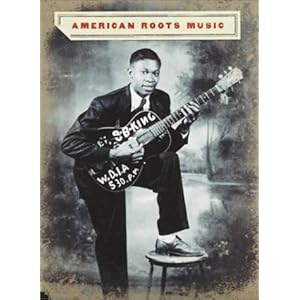 American roots music
by
American roots music
by
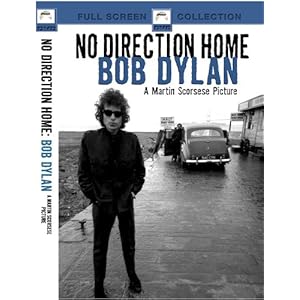 No direction home: Bob Dylan
by
No direction home: Bob Dylan
by
 The American folk-blues festival
The American folk-blues festival
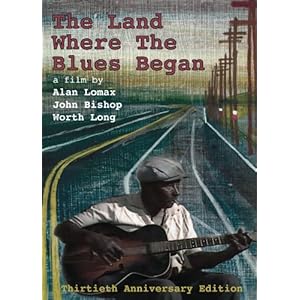 The land where the blues began
by
The land where the blues began
by
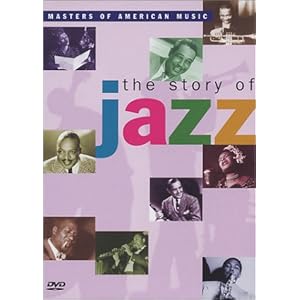 The story of jazz
by
The story of jazz
by
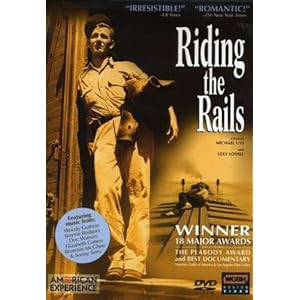 Riding the rails
by
Riding the rails
by
 Man in the sand
by
Man in the sand
by
American Roots Music is as varied as the country and the people who populate it. From the Delta Blues sound of Mississippi to the Jazz of Kansas City, American Roots Music encompassess everything from the Folk sound of Woodie Guthrie Depression Era protest music to the Chicago sound of Muddy Waters and Howlin' Wolf. Blues, Country, Folk, Bluegrass, Jazz, Gospel, Cajun, Zydeco, Native American and Tejano. These are the musical forms that combined on American soil and emerged as the most pervasive music in the world.
The following are a list of Recording Companies involved in the preservation and production of available American Roots recordings.
Please visit the following Libguide pages to locate recordings of American Roots music:
R. L. Burnside (November 23, 1926 – September 1, 2005), born Robert Lee Burnside, was a North Mississippi hill country blues musician. The earliest recordings of R.L. date back to the 1960s and while he played music for much of his life, he was not recognized until recording efforts were made by Fat Possom Records in the mid-1990s. For most of his life, R.L worked as a sharecropper in Holly Springs, Mississippi. He learned how to play from his friend Fred McDowell in New Orleans and cousin-in-law Muddy Waters in Chicago during the 1930s. Over his final 20 years, R.L, was a successful touring musician, performing with Kenny Brown and Cedric Burnside. R. L.'s story was documented in the 2005 film "You See Me Laughin: The Last of the Hill Country Bluesmen'".
Charlie "Yardbird" Parker was an American Jazz Alto Saxophonist from Kansas City, KS with connections to Miles Davis, Dizzy Gillespie, Bud Powell, Max Roach and numerous other Jazz musicians of the Bebop era. Along with Dizzy Gillespie, Parker played a leading role in the development of the Bebop Jazz movement of the late 40s and early 50s, prior to his death in 1955.
Coleman Hawkins was an Amerian Jazz Tenor Saxophonist from St. Joseph, MO and later Topeka, KS. Hawk along with Lester Young were considered the great Pre-Bebop saxaphonists of their era. Hawkins is recognized for his most famous recording, "Body and Soul", in which, Hawkins completly ignores the melody in favor of the type of improvisation that would inspire his Bebop followers.
Eddie James "Son" House, Jr. (March 21, 1902 – October 19, 1988) was an American blues singer and guitarist who pioneered an innovative style featuring strong, repetitive rhythms, often played with the aid of slide guitar, and his singing often incorporated elements of southern gospel and spiritual music. This style has become known as "Delta Blues". "Death Letter Blues", written by Son House, is a today considered a blues standard and has been recorded by numerous bluesmen including Muddy Waters, Leadbelly, Robert Johnson, Derek Trucks and Jack White.
Sam John Hopkins (March 15, 1912 – January 30, 1982) is amongst the most highly recognized bluesmen. Better known as Lightnin', Sam began his career accompaning Lemon Jefferson in the early 1930s. He spent time in the Houston County Prison Farm in the late 1930s and later worked as a farmhand. In 1946, Sam's fortunes changed when he signed with Aladdin Records. Today a statue of Sam stands in Crockett, Texas:
"Baby, Please Don't Go" is a Chicago Blues Standard, originally recorded by Big Joe Williams in 1935. It has since been recorded by artists as diverse as Muddy Waters, AC/DC, THEM, The Doors, Mississippi Fred McDowell, Bob Dylan, The Animals, and Aerosmith.